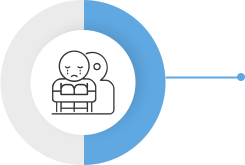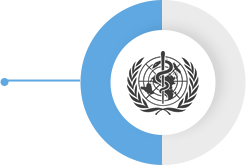Why OCD?
Obsessive-Compulsive Disorder (OCD) is a common, chronic and long-lasting mental health condition in which a person experiences uncontrollable, intrusive and reoccurring thoughts (obsessions) and behaviours (compulsions) that (s)he feels the urge to repeat over and over, in the attempt to temporarily relieve the unpleasant feelings brought on by the obsessive thought.

OCD is the fourth most common mental disorder after depression, alcohol/substance misuse, and social phobia/anxiety.
According to the World Health Organisation, it is one of the 10 most disabling of all medical disorders.


It affects 2-3% of the population, women, men and children.
The condition typically starts during adolescence and early adulthood, although symptoms can develop at any age.


Once the condition has developed, it interferes significantly with the person’s life (or with the development of a child) and puts a great social and economic burden on the person and their environment.
OCD symptoms can range from mild to severe. Some people with OCD may spend a couple of hours a day engaged in obsessive-compulsive thinking and behaviour, for others the condition can completely take over their lives.


Existing treatments (medication and psychotherapeutic) are out-dated and usually only partially successful. Up to 30%–40% of patients do not respond to the available treatment options.
Sirgartan believes that mental illness should no longer be underestimated and stigmatized. Novel treatments and therapies are desperately needed, and resources invested into their development will be repaid by economic and social growth of a healthier society.
Glutamatergic drugs, such as the one targeted by Sirgartan, are also being studied as treatments for a number of psychiatric disorders and have important potential in the treatment of obsessive-compulsive disorder (OCD). This drug, if brought to market, could be life-changing for the millions of OCD patients showing resistance to available treatments.